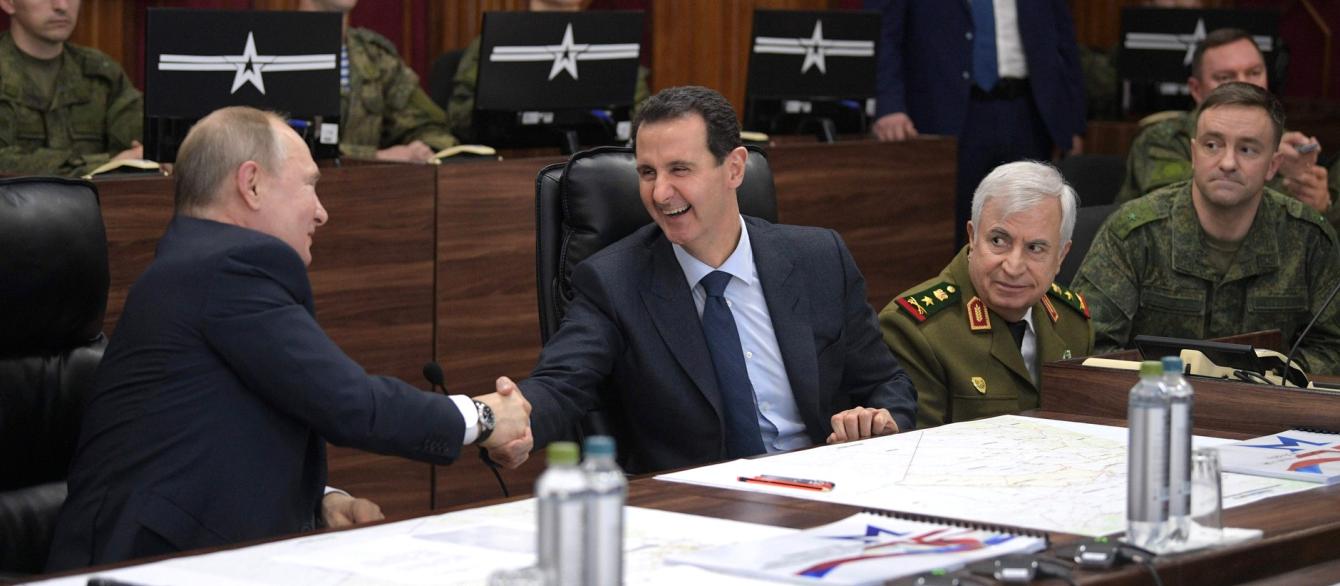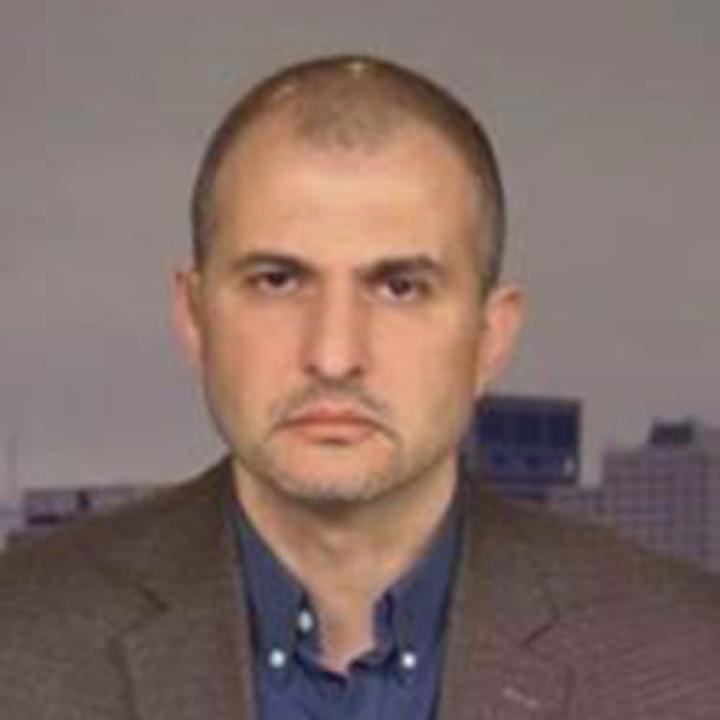This is an excerpt of an article originally published by Russia Matters, a Harvard Kennedy School project led by the author.
It's astounding but not unprecedented how quickly Bashar al-Assad’s regime has fallen. Just a week after capturing Aleppo, the opposition forces found themselves first at the gates of Damascus and then in control of the capital. It is difficult to see how Russia can benefit in any way from Assad’s flight to Moscow. In contrast, it is much easier to see how the end of the 53-year Assad dynasty could impose a number of tangible geopolitical, reputational, and even domestic security costs on Russia.
One obvious geopolitical cost is, of course, the loss of one of the few official military-political allies Moscow has retained outside the former Soviet Union after its disintegration. There is no denying that the ouster of Assad doesn’t only weaken Russia’s geopolitical positions, but it also weakens Iran, with which Russia has been strengthening ties to not only cooperate in countering the West, but also to receive military aid for its war in Ukraine. Assad’s Syria is not the first military-political ally Russia is in the process of losing since becoming preoccupied with re-invading Ukraine in 2022. The first one (all but de jure) is Nikol Pashinyan’s Armenia, who says Yerevan is on the way out of the Russian-led Collective Security Treaty Organization. In fact, the ouster of Assad by rebel factions, some of which are strongly supported by Turkey, which is seen by some as the biggest winner in these developments, constitutes Ankara’s second recent success in its competition with Moscow for geopolitical influence, with the outcome of Azerbaijan’s second and third wars for Karabakh being the first such success.
The ouster of Assad could also lead to the loss of Russia’s Khmeimim air base and Tartus naval base. The loss of the latter would be particularly impactful given its role in facilitating Russian naval operations in the Mediterranean and its support for shipments from Russia to Africa. Some commentators in Moscow have expressed hope that Russia would be allowed to keep the Khmeimim air base and Tartus naval base, despite reports of Russian personnel there being ordered to pack and burn documentation, while some of their comrades-in-arms remained trapped at their positions outside the bases. The Guardian reported that the Kremlin has launched an effort to try to convince the victors to let Russia keep the two bases, and a Kremlin source told Russian news agencies that a deal has been struck to ensure the safety of the Russian military bases. The victors may guarantee that safety during the transition of power. However, in the longer run, it is rather difficult to imagine that the victorious coalition of jihadists (e.g., Hayat Tahrir al-Sham) and more moderate opposition factions would want their Syria to host the bases of a country that has employed dozens of warplanes to bomb them from the air and thousands of PMC Wagner soldiers and other mercenaries to fight them on the ground.
Moscow’s failure to help Assad cling to power also creates reputational costs for Russia in general and for its ruler Vladimir Putin in particular, even if the Russian authorities may have facilitated the purchase of a number of safe houses for Assad’s clan in Moscow. Other than some half-hearted air attacks on the advancing opposition last week, the Russian forces in Syria are not known to have done anything tangible on the ground to help the Syrian dictator defend his region. In fact, it would be surprising if the Russian military did more, given the scarcity of its military assets on the ground. With PMC Wagner gone from Syria last year and some of the Russian Defense Ministry’s own grouping downsized to free badly needed resources for the war against Ukraine, it is difficult to imagine how Russia, without the help of Iran and its proxies, could have reversed the tide militarily. Nevertheless, Russia’s (and Iran’s) failure to save Assad’s rule cannot help but impact views in countries whose leaderships are engaged in analyzing the costs and benefits of allying with Russia.
Additionally, while Syria has been far down on the list of Russia’s leading trade partners, the Assad regime did not only spend hundreds of millions of dollars on Russian arms, but also purchased Russian goods that were not competitive on global markets, such as Russian-made passenger cars. It is difficult (but not impossible in the realm of transactional realpolitik) to see the victorious opposition spending as much on imports from Russia, which exported almost $600 million worth of goods to Syria in 2021. It is also unclear whether the next government (or governments) in Syria will honor all of Russia’s investments into Syria, which total more than $20 billion.
There are also other ways that the ouster of Syria’s Alawite dynasty, which has been allied with Shia Iran, may bode ill for Moscow. For instance, some of the disparate victorious opposition forces include Sunni jihadist groups that have been in the past allied with al-Qaeda (e.g., HTS) and ISIS.1 Should these factions play decisive roles in Syria’s future foreign policies, one cannot rule out that they will offer tacit support for (and/or turn a blind eye to) Sunni jihadist groups waging campaigns of political violence against Russia, including acts of terrorism against civilians. In fact, the risk of such support emerging was among the reasons why Putin chose to intervene in the Syrian conflict on Assad’s side in 2015.2 Paradoxically, perhaps, to some, preventing jihadist groups from becoming the sole uncontested power in Assad’s Syria is an interest that Putin’s Russia shares with the U.S., although it is something that pro-Kremlin commentators tend to ignore.
To read a compilation of comments from Russian officials, experts, and media about Assad’s fall, its causes, and its consequences, go to the original publication.
All opinions expressed herein are solely the author's, unless otherwise noted.
Footnotes
- In addition to these operating fighters, there have reportedly also been tens of thousands of individuals connected to ISIS that are detained in camps and prisons, primarily in areas controlled by the Syrian Democratic Forces (SDF).
- When asked by FT in 2019 to comment on his decision to intervene in Syria, Putin said: “In the long run, I decided that the positive effect from our active involvement in Syrian affairs for Russia and the interests of [Russia] would far outweigh non-interference and passive observation of how an international terrorist organization grows ever stronger near our borders... First of all, many militants planning to return to Russia were eliminated… Secondly, we have managed to stabilize the situation in a nearby region, one way or another… We have directly strengthened Russia’s domestic security. This is the third thing. Fourthly, we have established sufficiently good business-like relations with all regional countries, and our positions in the Middle East region have become more stable.”






